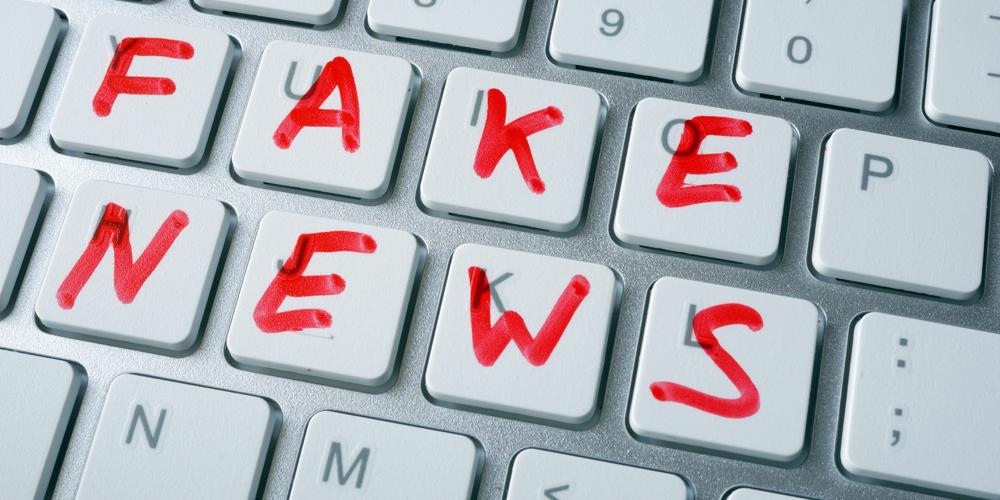In his recent interview with The Atlantic, former US President, Barack Obama, emphasized the danger of exploding misinformation to the American society. “If we do not have the capacity to distinguish what’s true from what’s false,” he said, “then by definition the marketplace of ideas doesn’t work”. Even for the distracted, Obama’s concern is legitimate and a call to action. He’s a long-running victim of well-oiled disinformation warfare, with even his birth certificate once forged and passed off as authentic online to caricature his political integrity.
The main villain of Obama’s story was his old nemesis, Donald Trump—a notable promoter and enabler of the untrue. It’s this notoriety that haunted the US President in this month’s US elections, with Twitter consistently censoring his wild claims about electoral fraud and some clandestine conspiracies to undermine the voting process. Trump’s case is why Obama’s solution—that social media companies must take a more active editorial position—is convincing. But his call for government regulation is the tricky argument.
Obama’s outrage resonated among the Nigerian political class, but Nigerian government officials who rushed to quote favourable excerpts from the extensive interview are also guilty of dispensing fake news whenever it favours them. Watching the politicians who weaponized fake news to demonize the past governments, suddenly developing sensitivity to the very practice they enabled, seem sage. Only that their perception of fake news isn’t that which lacks proof, but what doesn’t favour or flatter them.
The question of Lekki shootings revealed both the danger of misinformation and the hypocrisies of the government pretending to stand for verifiable news. One side, in a bid to report what transpired, deployed footage and images from unrelated events to antagonize the government for its atrocious act of indiscretion. But the government’s responses to the Lekki shootings are self-incriminating, and this has led to a dilemma on who must be trusted to regulate the dangerously democratized social media.
The possible answers and solutions aren’t as simple as they seem. The social media bill, first proposed as Protection from Internet Falsehood and Manipulations Bill 2019, is being fiercely resisted by Nigerians. The originator, Senator Mohammed Sani Musa from Niger state, underestimated the degree of distrust between the government and the people, and why such legislation is prone to abuse by a government already notorious for flouting the rule of law.
One consistent position espoused by Nigerians, in their opposition to the social media bill, is the existence of extant laws to check the excesses of fake news merchants online. If any citizen is found wanting or maligned on any digital platform, the Judiciary is there for justice. Nigeria’s Cybercrime Act, despite its dangerously ambiguous clauses, is more than sufficient guidebook for both government officials and citizens in bringing sanity to online engagements.
The brutal antagonizing of dissenters and dissidents, which has played out even in this government’s crackdown on #EndSARS protesters, legitimizes the fear of social media regulation by the government. Allowing self-serving politicians to freely regulate social media signals the death of this fourth and most effective arm of government. Social media has been the last resort of the common man, and the only real power repressed citizens possess over the government. Without it, the government, which already controls and dictates the contents of all traditional media platforms, is unstoppable. And that’s a pathway to Hitler-type authoritarian state.
It’s also amusing that Lai Mohammed, who eaponized fake news even in discharging his duties as Minister of Information, is at the forefront for the bill. But what set his argument apart is his glorification of China’s approach. Beyond China’s gagging and hounding of the local media and citizens drawing attention to the country’s forcing of about one million Uighur Muslims into concentration camps, China is a helplessly brutal state, and even Lai Mohammed, who’s known for unverified utterances, can’t survive in China outside the government.
There are more important things for Nigeria to learn from China, and the first is the miracle of Beijing’s transformation from a nation with about 88 percent of its citizens living below the poverty line in 1981 to this prosperous global power with an incredible 0.7 percent poverty rate in 2015, and aspiring to eradicate poverty in this uncertain 2020.
Another solution Lai Mohammed also skipped in the borrowing of ideas from China is the war against corruption. The Minister’s political tribe would’ve been long executed by the state if Nigeria had been dispensing death penalties unbiasedly for “extremely serious corruption cases” as China does. But we seem to care more about the threats from social media than we do about the threats that have plunged half the population of the country in extreme poverty.
What the government seeks isn’t a regulation, it’s a systemic stifling of dissenting voices. This is what the Lekki shootings emphasized. When DJ Switch’s Instagram live coverage of the shootings at Lekki tollgate stopped the heart of Nigeria, Nigerian Army rushed to deny it, claiming its men weren’t at the scene, and called it fake news. As more proof emerged, they owned up to their presence, but that only blank bullets were used, and shot into the air. Their claim that no lives were lost was falsified by the account of Lagos state Governor, Jide Sanwo-Olu, who revealed that two protesters were killed by the soldiers. These conflicting reports, of which both the citizens and the government participated in dispensing falsehoods, necessitated setting up a panel of investigation, and the interest of financially capable media organizations.
Sincerity in fighting fake news can’t be the interest of a government that has invested heavily in denying and erasing what transpired at Lekki tollgate. CNN, this week, took the challenge to investigate what exactly transpired on October 20, and their findings were devastating. “CNN should be sanctioned for that,” was the reaction of Lai Mohammed, the spokesman of the government masquerading as the gatekeeper of fake news.
This dishonesty of the government was further highlighted in an investigation by
Jean Le Roux, a South Africa-based forensic investigator, with the Digital Forensic Research Lab (DFRLab). He uncovered sockpuppets—false online identities—that dispensed pro-government contents, targeting #EndSARS campaign and promoters maliciously. This morally deficient approach is the handiwork of a government asking to take control of the people’s right to free speech.
But, beyond the danger of sockpuppets in managing misinformation, we must also prepare for the threat of deepfakes – the use of artificial intelligence in a video to make someone say something they have not. So, even with government-sanctioned regulations, how would sockpuppetry and deepfakes be tendered before the court of law to seek justice? This is an important dilemma in thinking ahead.
But, as Obama pointed out, social media companies must re-assess their responsiveness to fake news. The government’s role is empowering the institutions tasked with penalizing identifiable abusers of social media, and ensuring even the pro-government aren’t protected whenever and wherever found wanting. With fake news perceived, sometimes, as a clash of perspectives, and other times as cherrypicked facts, we must be wary of a regulator who has a horse in the race.

 Join Daily Trust WhatsApp Community For Quick Access To News and Happenings Around You.
Join Daily Trust WhatsApp Community For Quick Access To News and Happenings Around You.


